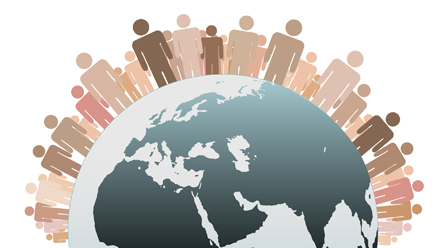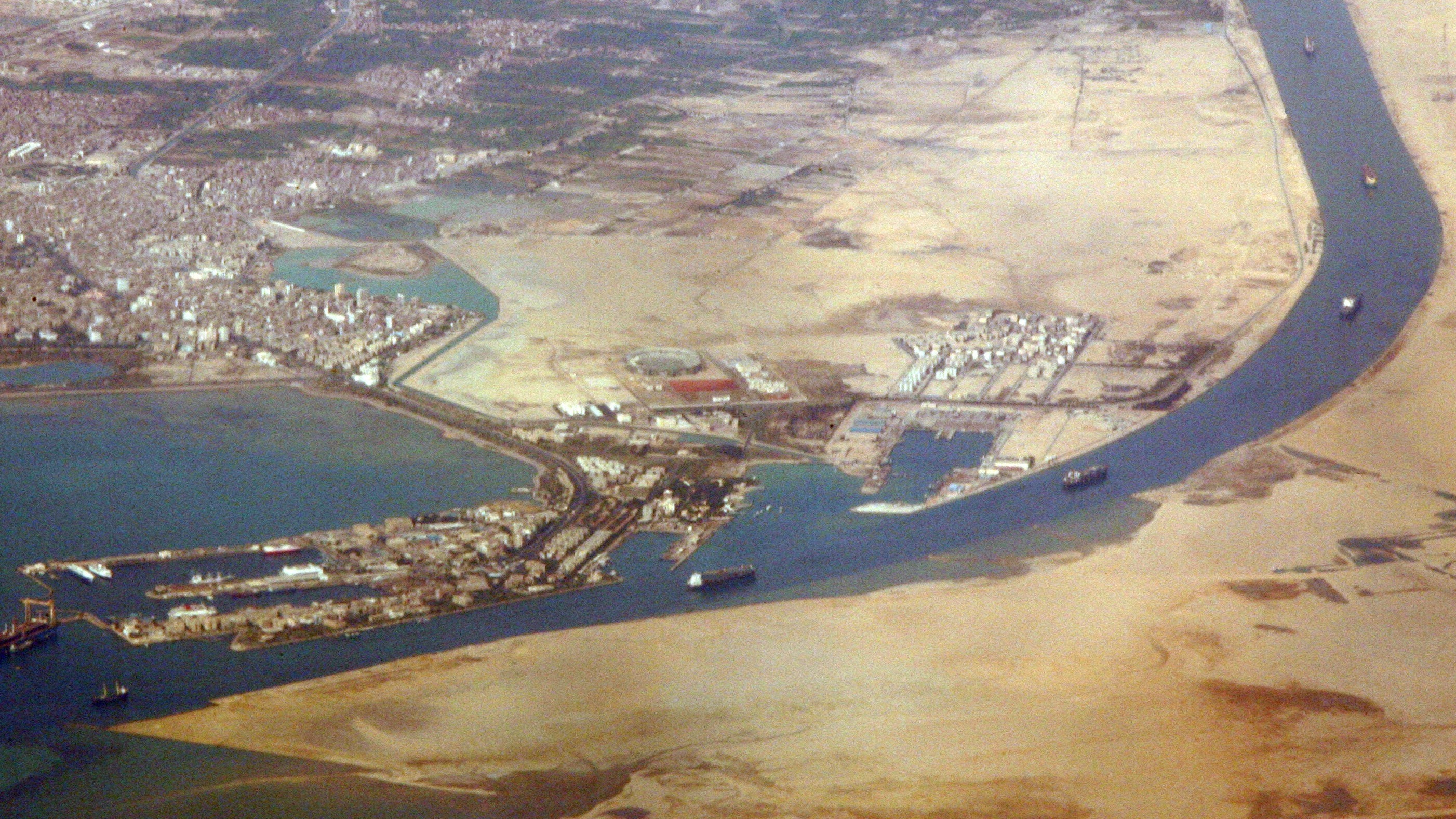Jobs, security, investment: Africa’s next billion
By 2050, Africa’s population will hit 2.4 billion. What effect will this have and what opportunities will it present for your business?

By 2050, Africa’s population is projected to swell from 1.1 billion today to 2.4 billion people, according to analysis carried out by the Population Research Bureau, a respected US non-profit organisation.
By the middle of the century, many African countries will have more than twice the number of people they have today. Kenya's population, for example, is expected to more than double from 44 million to 97 million and Nigeria's will balloon from 174 million to 440 million. Other African countries will follow similar expansions. As the continent continues to develop and change, what effect will it have on the continent’s economies, and what opportunities will it provide for both African and UK businesses?
Infographic: Africa’s expanding population
The Week
Escape your echo chamber. Get the facts behind the news, plus analysis from multiple perspectives.

Sign up for The Week's Free Newsletters
From our morning news briefing to a weekly Good News Newsletter, get the best of The Week delivered directly to your inbox.
From our morning news briefing to a weekly Good News Newsletter, get the best of The Week delivered directly to your inbox.
Why is Africa’s population growing?
According to the Daily Telegraph, sub-Saharan Africa’s population is growing due to advances in modern medicine and healthcare which mean that more babies are surviving childbirth and fewer adults are dying from preventable diseases. Simultaneously, the number of children being born across the continent appears to be holding steady. Together these factors are generating a population explosion.
Is Africa’s population expansion a challenge or an opportunity?
Some experts believe that Africa’s growing population poses a challenge unless properly managed, but others say that having a young population can help drive development and offers a massive potential work force.
"Rapid population growth makes it difficult for economies to create enough jobs to lift large numbers of people out of poverty," said Wendy Baldwin, the Population Research Bureau’s president.
"This is clearly going to increase pressure on Africa's governments to deliver education, health care, security and, most importantly, jobs," agrees Julia Schünemann, director of the Africa Futures Project at the Institute for Security Studies in South Africa.
"But it should be seen as an opportunity too. African countries also have the world's fastest economic growth rates. The question is, can those economies grow fast enough to offset the demands of population growth?".
Analysts like Schünemann who believe the changes could create new opportunities say that growth may allow domestic markets to be created, increase demand for services and could end up helping local firms develop and foreign firms grow their businesses across the region.
Where are the opportunities for business?
Cheryl Buss, Head of Global Corporates for Barclays Africa, identifies four key areas of opportunity for businesses looking to invest in Africa as the population continues to grow: resources, consumer services, agriculture and infrastructure, but, she notes, “when we look at the current landscape, what is important is recognising the long term investment and commitment required for the continent.”
Broad opportunities
Sub-Saharan Africa is renowned for abundant natural resources, but increasingly the region is also becoming known for its expanding multinational companies. Global companies, including a large number of businesses from China, are now investing in the continent by establishing multiple operations and working in conjunction with small African businesses.
For example, a fast moving consumer goods company has worked with Barclays to partner with an NGO to develop a sustainable supply chain connecting thousands of small farmers to deliver locally produced crops, creating sustainable livelihoods and supporting the local agriculture industry, while also helping to boost crop production in Ghana.
As well as opportunities for multinationals, there are also new possibilities across the continent for fast-growth companies, Ventures Africa notes , in sectors as diverse as technology, mobile, food, sustainability, gaming, accounting, advertising, fashion and cosmetics.
Rapid development
There are numerous examples of companies making the most of this growth across Africa. Azuri Technologies, the developer of a pay-as-you-go solar power system for off-grid markets, worked with Barclays to deploy its power systems across sub-Saharan Africa, bringing power to hundreds of thousands of rural customers, in some cases halving the cost of electricity and helping small businesses grow.
At the beginning of the year, Venture magazine listed its Top 25 fast-growing companies to watch, many of whom have already undergone rapid expansion. These companies’ successes across Nigeria, Kenya, South Africa, Tanzania, Uganda, Ghana, Cameroon, Rwanda, DRC, Sierra Leone, Mozambique and Egypt show how geographically widespread the opportunities in Africa are becoming.
Rising middle class
According to the Globe and Mail, the much anticipated rise of the African middle class is now demonstrably real “and it’s gaining speed”. So what does this mean for UK businesses?
Many analysts believe that the rise of the middle class will not only help to provide skilled labour, but also creates demand for both local and international products and services, so there is an opportunity to get involved in a growing market with a greater disposable income than ever.
Across Africa, there have also been massive improvements in regional and national infrastructure, as well as communication facilities. All of these changes provide huge opportunities for UK businesses.
An opportunity for one is an opportunity for all
Buss says that there is increasingly wider development in the private sector. “More and more we are recognising that when corporates go into Africa, there is a need to work together to develop the communities in which they invest, to ensure long term economic and sustainability all round”.
Some of the African countries that Buss says present specific opportunities include Zambia, which is “experiencing vast growth at the moment” and offers resource and agricultural opportunities, Mozambique which is “in growth due to its natural gas finds”, Nigeria, which offers oil, and Ethiopia “is currently one of the largest growing economies in the world”.
But, Buss says, if you are going to be successful in any of these countries you need a political, social and logistical understanding of where you are planning on doing business: “Increasingly, when you speak to multinational corporates, they say that you have to be on the ground. You need local talent and you need local understanding to be successful. If you are permanently seen as the outsider then I don’t think you will naturally manage to be as successful as a business that is firmly entrenched in a country”.
Associated British Foods, Unilever and other businesses form a model for future businesses who wish to do well in Africa as its population continues to expand, Buss says. All of these companies have thrived because they are “committed to being on the ground, and they ensure that a large portion of their supply chain is local. Through that, and through government partnerships, they are saying ‘we are here and we need to be here’ and show a commitment to the long term future of the continent”.

A free daily email with the biggest news stories of the day – and the best features from TheWeek.com
-
 5 blacked out cartoons about the Epstein file redactions
5 blacked out cartoons about the Epstein file redactionsCartoons Artists take on hidden identities, a censored presidential seal, and more
-
 How Democrats are turning DOJ lemons into partisan lemonade
How Democrats are turning DOJ lemons into partisan lemonadeTODAY’S BIG QUESTION As the Trump administration continues to try — and fail — at indicting its political enemies, Democratic lawmakers have begun seizing the moment for themselves
-
 ICE’s new targets post-Minnesota retreat
ICE’s new targets post-Minnesota retreatIn the Spotlight Several cities are reportedly on ICE’s list for immigration crackdowns
-
 Lesotho: the tiny African nation in the crosshairs of Trump's tariff war
Lesotho: the tiny African nation in the crosshairs of Trump's tariff warUnder the Radar US president imposes 50% reciprocal levy on the impoverished state: the highest of his so-called 'Liberation Day' tariffs
-
 Nigeria's economic woes: what went wrong for African nation
Nigeria's economic woes: what went wrong for African nationUnder the radar President Tinubu is struggling to tackle soaring inflation after 'shock therapy' of ending fuel subsidies
-
 What new president Bola Tinubu means for Nigeria
What new president Bola Tinubu means for Nigeriafeature Many question whether 70-year-old will be able to revive ailing economy, heal divisions and provide security
-
 What is the plan for unblocking the Suez Canal?
What is the plan for unblocking the Suez Canal?In Depth International trade hit as freight vessel becomes wedged across vital shipping route
-
 Egypt to sue Christie's to retrieve Tutankhamun bust
Egypt to sue Christie's to retrieve Tutankhamun bustSpeed Read Statue sold for £4.7m last week in ‘one of its most controversial auctions in years’
-
 Investor walks away from Bell Pottinger as South African race row deepens
Investor walks away from Bell Pottinger as South African race row deepensSpeed Read Beleaguered PR firm faces 'almost certain' collapse after expulsion from trade body
-
 Steinhoff bumps up Poundland bid after hedge fund move
Steinhoff bumps up Poundland bid after hedge fund moveSpeed Read Extra 5p per share gives US activist investor Elliott Advisors a 'pretty modest victory'